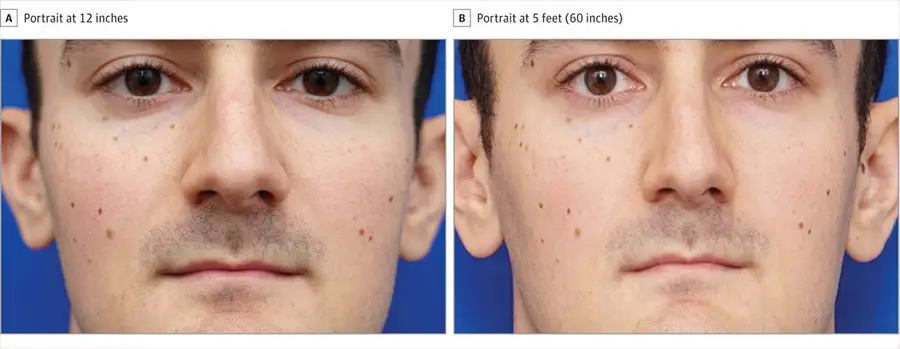

Not everyone will experience thinning hair from Accutane. Your hair should grow back after you stop the medication. You may notice your hair thinning during Accutane treatment. While rare, this can be a sign of serious muscle damage. But if you develop muscle weakness, let your provider know right away. If this side effect becomes bothersome, your healthcare provider may suggest an OTC pain reliever to help. This is usually temporary and should get better after you stop taking Accutane. You may experience mild to moderate muscle or joint pain during treatment. Muscle and joint painĪccutane can also affect other parts of your body, including your muscles and joints. And it should continue to do so for a period of time after you’ve finished treatment.
Does accutane make your nose smaller skin#
It’s important to keep this in mind as you’re getting started.īut after a month or two of taking the medication, your skin should start clearing up. And your skin may get worse before it gets better. Worsening acneĪs with many acne treatments, it can take time to start seeing results while using Accutane. Applying petroleum jelly inside of your nose can help keep it moist. Hydration is essential in managing this side effect. Your nasal passages can also become dry and irritated during Accutane treatment. Let your dermatologist know if you notice any vision changes. In some cases, this issue may not resolve after you stop treatment. One potential side effect is trouble seeing in the dark (night blindness), which can make it difficult to drive. That’s because preservatives found in other drops can be harmful to your eye.Īccutane can cause other eye problems as well.

But they may be a better option if you’re having to use the drops several times a day or if you wear contact lenses. Preservative-free drops can be more expensive. There are many brands of eye drops to choose from, including those with and without preservatives. Over-the-counter (OTC) eye drops, such as artificial tears, can help provide relief from dry, irritated eyes. If you wear contact lenses, your eyes may be more sensitive to them during and shortly after treatment. Dry eyesĪccutane doesn’t just dry out your skin. Your dermatologist can recommend a moisturizer that’s good for your skin type. Be sure to choose one that’s oil-free to prevent breakouts. Like dry lips, peeling and flaking skin should subside after you stop taking the medication.Ī good moisturizer is key to making this side effect more manageable. It can cause your skin to flake and peel. Peeling skinĭry skin is another common Accutane side effect. During that time, using a good lip balm, Vaseline, or Aquaphor to keep your lips hydrated is a must. A typical course of Accutane lasts about 4 to 5 months. This should improve after you stop taking it. But this effect can also dry out your skin, especially on your lips.ĭry, chapped lips are common with Accutane. One of these is by targeting excess oil production that can contribute to clogged pores. Dry lipsĪccutane works a few different ways to treat acne. But let’s discuss 15 side effects you should know about. While that last one isn’t true, there are many real side effects and risks to consider before you start the medication.įor many people with severe acne, Accutane is worth it, even with the side effects. You may have heard that Accutane can make your nose smaller, too. Chapped lips, dry skin, and temporary worsening of your acne are a few examples. Other brands, including Claravis and Amnesteem, are also available.Īccutane has a number of side effects, and they tend to be fairly noticeable. Accutane is also available as a generic product and as a branded generic.

But if nothing has worked, your dermatologist may suggest Accutane ( isotretinoin). If you have acne, chances are you’ve tried lots of things to get rid of it.


 0 kommentar(er)
0 kommentar(er)
